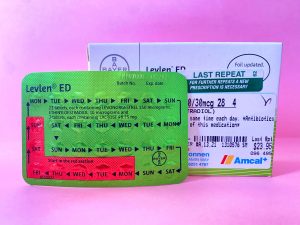Untested weight loss drugs legally injected into Australian bodies
By JESSICA CONWAY
THEY opened the fridge door carefully, quietly. Terrified someone would hear. Terrified of the awkward questions that would inevitably come. There were no approaching footsteps. They reached for the unmarked, unprescribed vial, one quarter full of clear, cold liquid. They inserted the needle and drew out the recommended dosage. They stuck the loaded needle into their stomach. They depressed the barrel. They prayed for overnight weight loss.
The internet supplies an ever expanding array of pills, potions, miracle cures and quick fix solutions marketed effectively at generally rational consumers. What is worrying is that Australia is not immune to the want of an overnight solution. Untold thousands are turning to the internet to take advantage of the grey areas in international legislation, namely what drugs are legal where and what testing and trialling processes are required to sell them? Who is supposed to regulate these products when they are created in Canada, made in China, copied en mass in Europe, sold by an internet company located anywhere and purchased by people all over the world?
Current trends are for injections claiming weight loss and physical enhancement. The most common substances are called HGH, CJC, GHRP-6 and IGF-1, but the list goes on. Do any of these sound familiar to you? No? How about Somatropin, AOD9604, Sermorelin or Somatorelin? Still nothing? That’s unsurprising. The trouble is they don’t ring any bells with our medical practitioners either.
General Practitioner Helen Wessell recalls people coming in weekly with “some name off the net” for a previously unheard of drug. The problem is that she doesn’t “even know where to find out about these things” and cannot offer any professional advice.
Those selling the drugs, and turning a profit, presently hold the balance of power on the net, with very little objective and credible information available. The websites claim that these products will make you drop abdominal fat, increase muscle, strength and energy, sleep better, improve skin tone, increase bone and connective tissue strength. And that is just one product! What they don’t tell you is the potential for facial bone growth, heart attacks, diabetic coma, liver damage, impotence and potential premature ageing. However, due to the lack of trials, the chances of positive and negative effects are still relatively unknown.
The vice-president of the Australian Medical Association, Stephen Hambleton, agrees that the internet is a dangerous place for medicines.
“There are dangerous products coming in,” he said. “There are long-term issues with many products. We need to look at that and tighten up our rules to make sure these products can’t be gotten.”
There are two significant aspects that foster the sale of these products. For one, it is legal to import restricted medicines, like those mentioned above, for personal use. And secondly, the TGA will not examine a drug, and therefore release studies to educate doctors, until they are approached by someone wanting to sell it in Australia. Why would a company bother with this costly and lengthy process when they can simply sell via the net?
Back to this faceless being at the start of the story. Who is this person? Who buys these products? It is impossible to know, but there are growing concerns for the abuse of the products by people with eating disorders, and abuse of these people by these websites.
Megan O’Connor, of Eating Disorders Victoria, noted the severe danger of these products for the mentally ill.
“If someone is in the grips of an eating disorder their judgement is severely compromised,” she said. “People go to extreme lengths and I would be in no doubt that people would engage in these sorts of behaviours, they would trying anything.”
Dr Voon unfortunately agrees.
“People want to get into all sorts of drugs,” Dr Voon said. “You can’t control them. We can’t do anything… People aren’t interested in the truth, that is why people don’t listen to the doctor.”
Dr Wessell has had similar experiences.
“A girl came in and asked my advice on a product,” Dr Wessell said. “I couldn’t tell her anything about it and advised against it, but I am sure she will go off and use it anyway.”
Who is responsible for protecting citizens globally? Who should be regulating the international medical trade? How can the government protect citizens locally? What is it within society that pushes people to focus on the physical appearance so intently? One thing is certain, there is a burgeoning market for these products, and untold thousands will shoot up with unregulated, untested internet medicines tonight.





Be the first to comment!